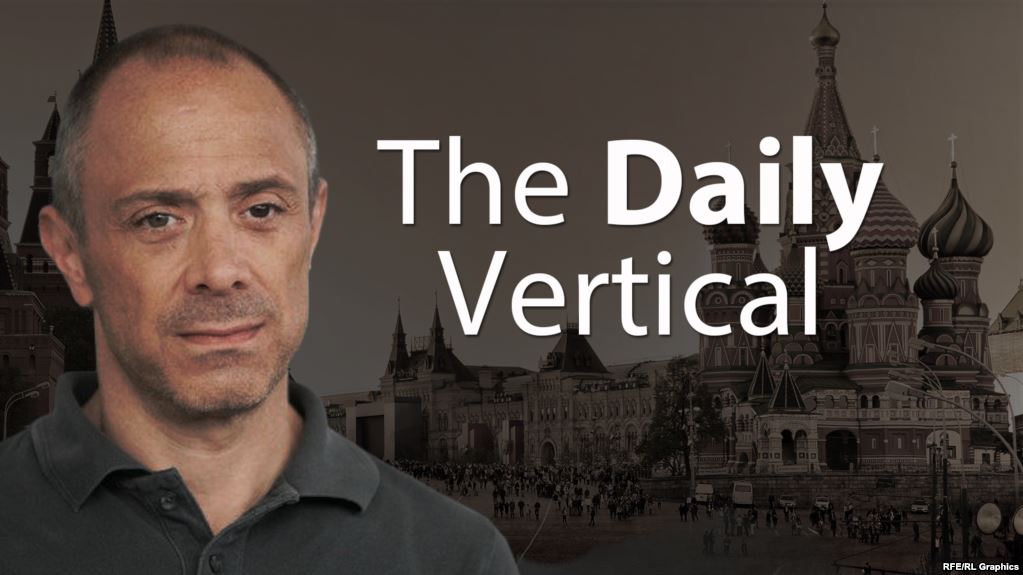
By Brian Whitmore, for RFE/RL
The most interesting thing that happened during yesterday’s so-called election was a heated debate between a candidate who received less than two percent of the vote and one who wasn’t even on the ballot.
One of the few things that wasn’t choreographed and stage managed; the only thing that appeared spontaneous on an utterly predictable day was a bitter argument webcast live on YouTube by a man who has effectively been barred from appearing on Russian television.
The thing people were anticipating as the polls were about to close in Russia yesterday was not the results of a fake election, which were preordained, but a very real confrontation between the two key figures in the opposition.
Aleksei Navalny and Ksenia Sobchak had been sniping throughout the campaign.
Navalny, who was not allowed on the ballot, was calling for a boycott.
Sobchak, who was and who won less than 2 percent of the vote, was trying to get voters to the polls.
Navalny accused Sobchak of collaborating with Vladimir Putin’s regime and helping legitimize a sham election.
Sobchak accused Navalny of being divisive and confrontational, and splitting the opposition.
In many ways, their public spat played right into the Kremlin’s hands, and may have been part of the regime’s plan.
But the debate between Sobchak and Navalny is in essence the key debate in Russian politics today.
It is essentially a debate about whether change can come about by working within the system or seeking to undermine it from the outside.
The facade, pomp, and circumstance of yesterday’s election was effectively a hollow ritual that has gotten stale. It was a portrait of the past.
But the debate between Navalny and Sobchak was all about the future.
By Brian Whitmore, for RFE/RL




